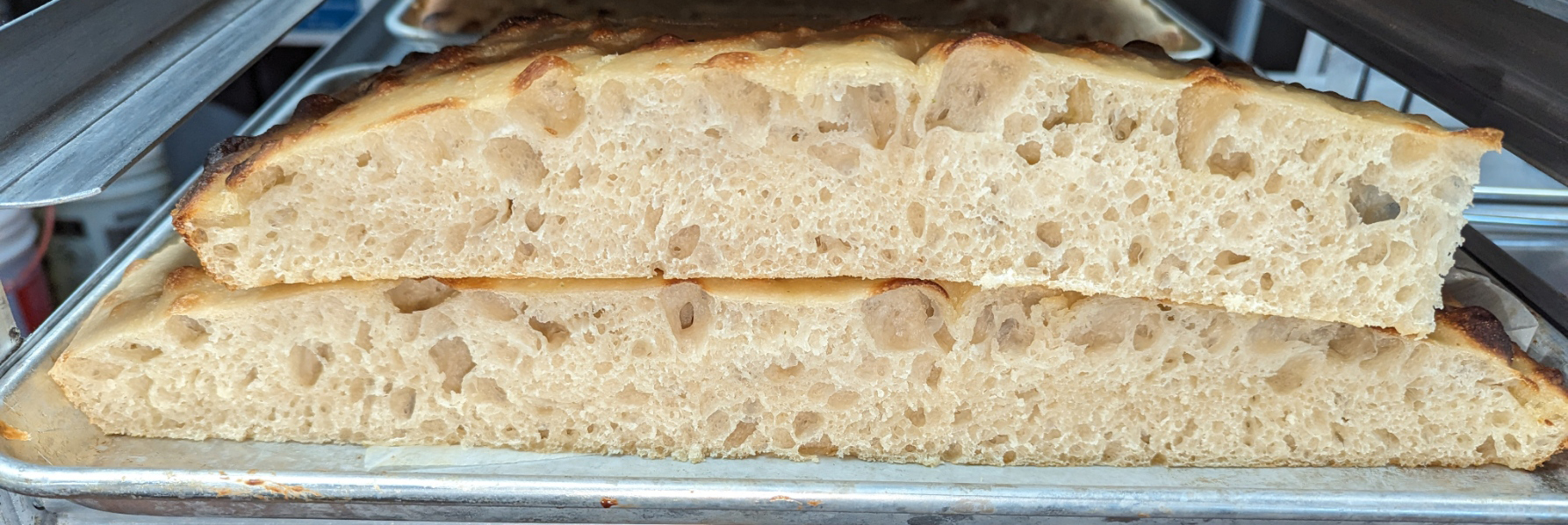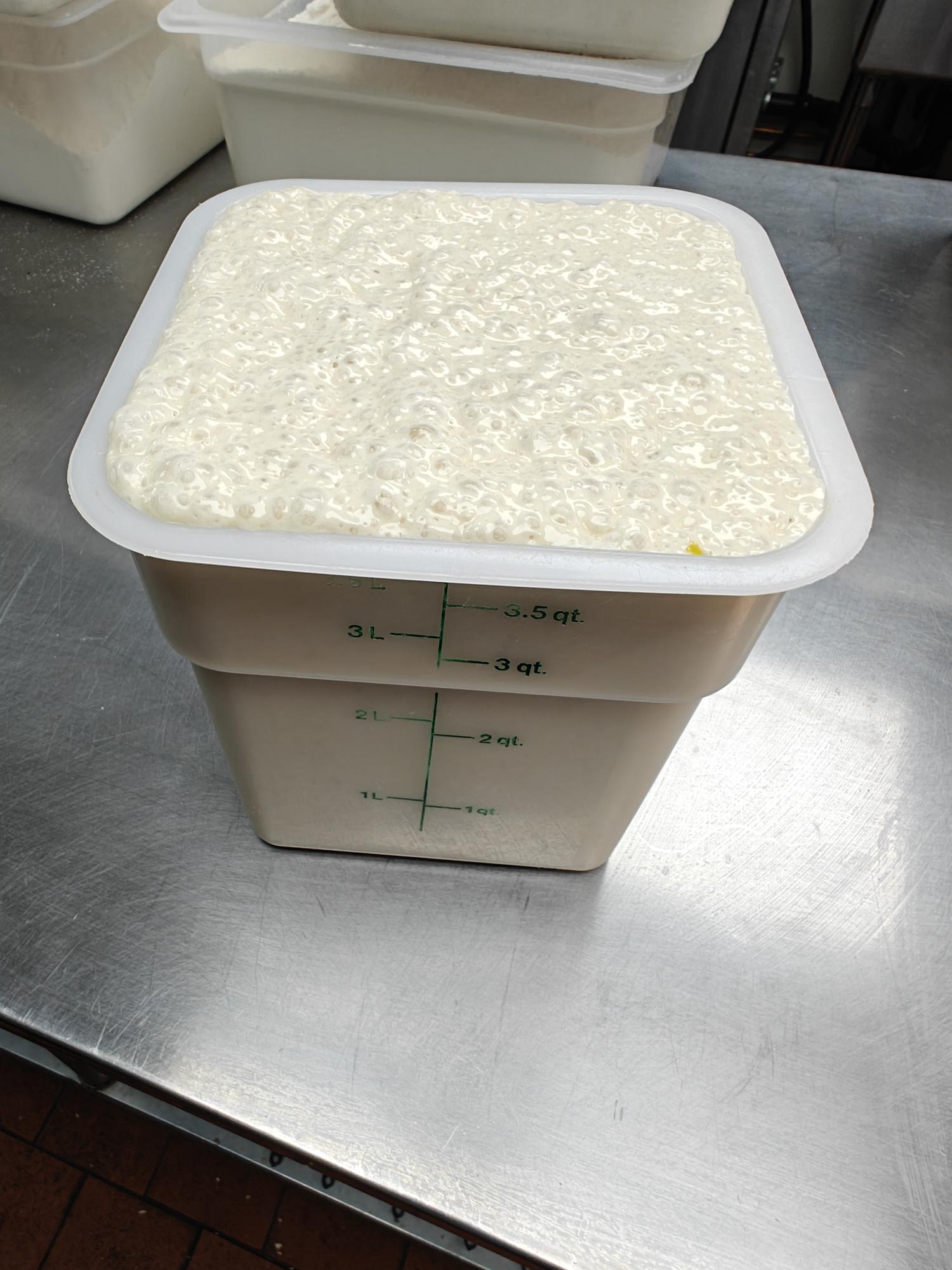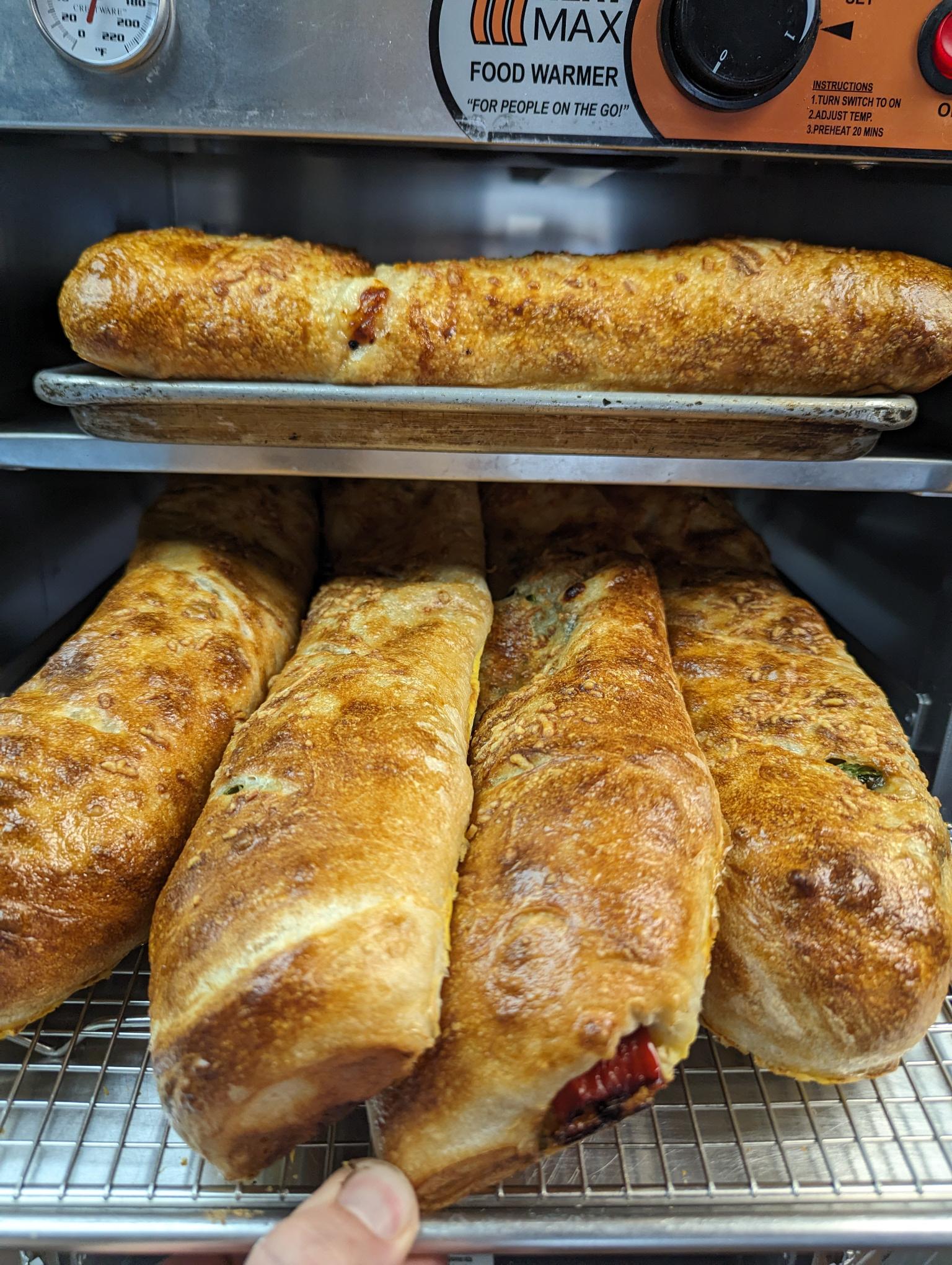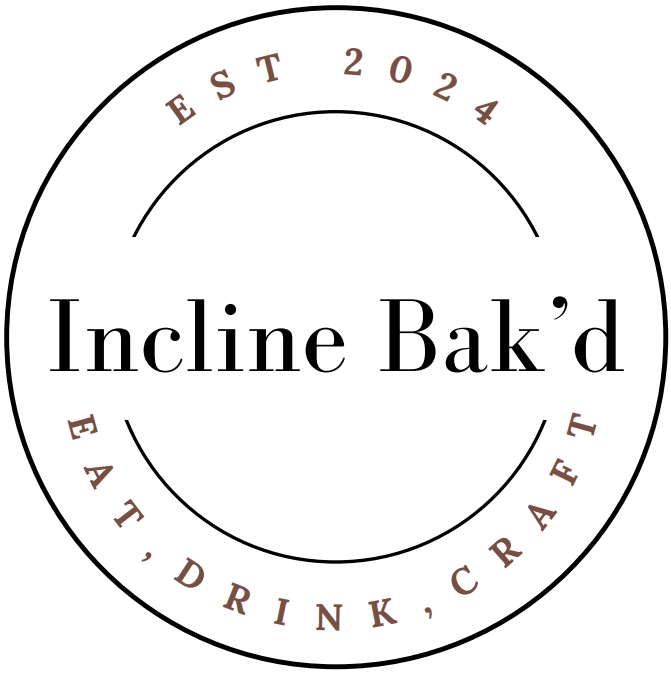Our Sourdough Story

Our Sourdough Starter: Born in Incline Village
In October 2023, we embarked on a mission to create a sourdough starter that would be uniquely our own. We began with an unusual twist – using unfermented beer wort (the sweet, nutrient-rich liquid from brewing beer) combined with organic unbleached flour to capture wild yeasts and bacteria from our local environment.
This initial blend of grains and local microbes gave life to our house starter right here in Incline Village. We have lovingly fed it only organic unbleached flour ever since, nurturing a robust colony of wild yeast and lactic acid bacteria that now forms the backbone of all our breads.

What does this mean for you? It means every loaf at Incline Bak'd is leavened with a one-of-a-kind culture you won't find anywhere else. No commercial yeast is ever used in our dough – our starter provides all the rise naturally.
This traditional approach results in bread with a distinct "terroir" (a sense of place). The painstaking method yields a depth of flavor and a moist, airy crumb that simply can't be achieved with factory-produced yeast. Our starter is a living link to authentic baking heritage: the longer we nurture it, the better it gets, adding character to each batch of dough.
In our kitchen at Incline Bak'd, great bread begins with great sourdough. We craft all our focaccia, Stromboli, and pizza dough using only our house sourdough starter, cultivated right here in Incline Village. We choose sourdough not only for its deep, nuanced flavor, but also for the wealth of health benefits that modern science continues to uncover – from easier digestion and better nutrient absorption to a gentler impact on blood sugar.
This approach honors tradition while enhancing wellness, making sourdough the heart of our kitchen – especially for those sensitive to gluten or seeking a more wholesome bread experience.

Why We Choose Sourdough
Natural Fermentation & Tradition
Sourdough is made through the natural fermentation of dough by wild yeast and lactic acid bacteria – a centuries-old baking method. This slow, all-natural fermentation not only develops exceptional flavor but also begins breaking down proteins (like gluten) and complex carbs in the flour. The result is bread that's more than just tasty; it's rooted in tradition and naturally gentler on the stomach.
Enhanced Digestibility & Nutrient Absorption
One standout benefit of sourdough is improved digestion and nutrition. The fermentation generates beneficial enzymes that pre-digest some of the starches, making the bread easier to digest. It also significantly lowers phytates – natural compounds in grains that can inhibit mineral absorption. With fewer phytates, your body can absorb more of the iron, zinc, magnesium, and other minerals present in the bread. In fact, research shows the sourdough process increases the availability of beneficial nutrients (like B vitamins, folate) and antioxidants in the bread, boosting its nutritional profile.
Lower Gluten & Reduced FODMAPs (Gentler for Sensitive Stomachs)
Sourdough contains less gluten than conventionally leavened bread because the prolonged fermentation partially breaks down gluten proteins. This makes it a more tolerable option for individuals with non-celiac gluten sensitivity (though it's not safe for those with celiac disease). Additionally, the lengthy fermentation reduces FODMAPs – fermentable sugars that can trigger IBS symptoms. Studies have found that genuine sourdough bread is less likely to cause bloating and digestive discomfort in people with IBS, compared to regular bread. For many who experience trouble with standard wheat bread, slow-fermented sourdough can be a welcomed relief.
Probiotic Effects for Gut Health
The lactic acid bacteria in sourdough are like tiny helpers in the baking process that also benefit your body. These friendly microbes (and the compounds they produce) act as natural probiotics, helping to support a balanced gut microbiome. Sourdough acts as a prebiotic too – meaning it provides food for the beneficial bacteria in your intestines, further promoting gut health. While most of the live cultures don't survive the baking heat, the byproducts they leave behind still foster an intestinal environment where good bacteria can thrive. In essence, sourdough bread tends to be easier on the gut and may even nurture it.
Lower Glycemic Index for Steadier Energy
Sourdough bread has a lower glycemic index (GI) than bread made with commercial yeast, meaning it causes a slower rise in blood sugar. The organic acids produced during fermentation, along with changes to the bread's starch structure, lead to a more gradual release of glucose into the bloodstream. For example, one analysis noted sourdough wheat bread has a GI of about 54, compared to around 71 for a standard white bread. This steadier carb release helps prevent blood sugar spikes and crashes, making sourdough a better choice for those watching their blood sugar or anyone who wants longer-lasting energy after a meal. A more stable blood sugar response can also aid in weight management by avoiding the rapid hunger rebounds that high-GI foods can cause.
Sourdough vs. Regular Bread – A Quick Comparison
| Aspect | Sourdough Bread (slow-fermented) | Conventional Bread (quick-rise yeast) |
|---|---|---|
| Digestibility | Fermentation breaks down some gluten and carbs, making it easier to digest and less likely to cause bloating. | Often harder to digest; more likely to cause bloating or discomfort in sensitive individuals. |
| Gluten & FODMAPs | Lower gluten content and reduced FODMAP levels from long fermentation. Gentler for those with mild gluten sensitivity or IBS. | Full gluten content and higher FODMAP levels; can trigger digestive symptoms in gluten-sensitive or IBS sufferers. |
| Blood Sugar (GI) | Lower glycemic index (~54), leading to a steadier blood sugar response. Helps avoid sugar spikes. | Higher glycemic index (~71), causing quicker spikes in blood sugar and energy crashes. |
| Nutrient Absorption | Reduced phytates due to fermentation, improving absorption of minerals like iron and zinc. More bioavailable nutrients. | Phytates remain intact, which can inhibit mineral absorption (even if the grains are whole). |
| Gut Health | Rich in lactobacillus (good bacteria) and fermentation byproducts that support a healthy gut microbiome. Acts as a prebiotic for beneficial gut flora. | Made with baker's yeast only (no lactobacillus); lacks probiotic byproducts and prebiotic benefits for the gut. |
